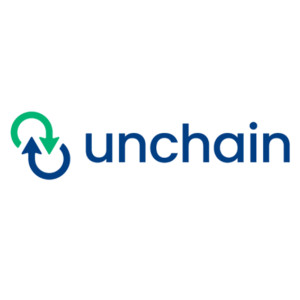 \
&
Contact us
\
&
Contact us
 \
&
Contact us
\
&
Contact us
Activities underthis societal challenge aim at making the best of our biological resources in a sustainable way. The objective is to contribute to securing sufficient supplies of safe, healthy and high quality food and other bio-based products, by developing productive, sustainable and resource-efficient primary production systems, fostering related ecosystem services and the recovery of biological diversity, alongside competitive and low carbon supply chains. This will accelerate the transition to a sustainable European bioeconomy, bridging the gap between new technologies and their implementation. To achieve this objective, the SC2 Work Programmes part offers opportunities in finding diverse and innovative solutions to well-identified challenges in key EU policy priorities.
Agriculture, forestry, fisheries and aquaculture, together with the bio-based industries, are integral parts of the European economy and society. Relying on the use of limited natural resources, these sectors produce and process biological resources to satisfy the demand of consumers and a wide range of industries for food, feed, bio-energy and bio-based products. While they enhance Europe’s self-reliance and provide jobs and business opportunities essential for rural, coastal and marine areas, these sectors are also facing significant challenges which require solutions based on research and innovation.
Agriculture and forestry have always had and maintain an important role for EU’s society: they supply reliable, healthy and nutritious food as well as feed and non-food products for a wide range of industries, shape and take care of our landscapes, provide public goods, and keep the countryside alive by providing jobs. Research activities and policies will help to cope with the three main challenges these sectors are facing today: securing viable food production in face of a growing world food demand; ensuring sustainable management of natural resources and climate action; and finally to contribute to a balanced territorial development of the EU’s rural areas and their communities.
Ensuring food security goes beyond securing a sufficient supply. It also requires social and economic access to safe and nutritious food. Food consumption has an impact on human health and the environment. The challenge is how to meet consumers' needs and preferences while minimising the related impact on health and the environment. Research and innovation will address food and feed security and safety, the competitiveness of the European agri-food industry and the sustainability of food production, processing and consumption. It will cover the whole food chain and related services from primary production to consumption.
Oceans and seas represent over 70% of the earth's surface, and living aquatic resources can provide a significant contribution to food, energy and bio-based products. The objective is to sustainably manage and exploit aquatic living resources to maximise benefits from Europe's oceans, seas and inland waters. This includes optimising the sustainable contribution of fisheries and aquaculture to food security, boosting innovation through blue biotechnologies and fostering cross-cutting marine and maritime research to harness the potential of Europe's oceans, seas and coasts for jobs and growth.
The transition from fossil-based European industries towards low carbon, resource efficient and sustainable ones is a major challenge. It entails the transformation of conventional industrial processes and products into environmentally friendly bio-based ones, the development of integrated bio-refineries and the opening of new markets for bio-based products. Research and innovation will provide the means to reduce the Union's dependency on fossil resources and contribute to meeting its energy and climate change policy targets for 2020.
Investments in research and innovation under this societal challenge will support Europe in contributing to food security, climate protection and sustainability. It will also enable Europe to take leadership in the concerned markets and will play a role in supporting the goals of the Common Agricultural Policy, the European Bioeconomy Strategy, and more broadly of the Europe 2020 strategy and its flagship initiatives 'Innovation Union' and 'Resource-efficient Europe'.

patrick.demolder@vlaio.be
+32 497 59 33 90
Infosheets contain edited content on aspects related to this programme. They are reviewed at least yearly.
Related links are easy pointers towards external information. We curate the list, but are not liable for the destinations.
Documents contain additional information related to this programme, and are similar to related links.

The UNCHAIN project, ‘urban logistics and planning: anticipating urban freight generation and demand including digitalisation of urban freight’ obtained funding from the Horizon Europe’s Mobility Cluster. The project focuses on breaking down data silos and promoting public-private data exchange across a unified European mobility data space, enabling more informed decisions and greater efficiency. The City of Mechelen is a partner in the project and takes on the role of ‘follower city’: it will work alongside the primary demonstration sites (in Madrid, Berlin and Florence) to maximize the geographical coverage and replicability of solutions across Europe. Mechelen aims to test 2 concrete solutions in the UNCHAIN project, with the aim to help addressing its current and future challenges in urban freight distribution.